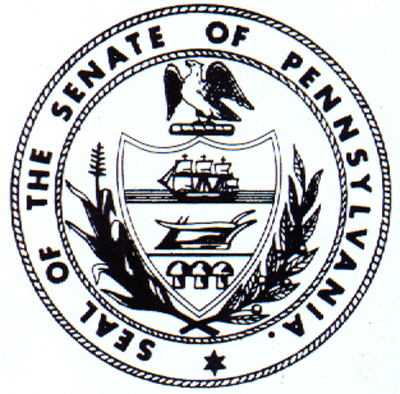|
|
||||||
FUMO PROMISES DEMOCRATIC VOTES TO HELP SOLVE DEFICIT HARRISBURG, February 27, 2003 – The Democratic leader of the Appropriations Committee, state Senator Vincent Fumo, said this week that his party would be willing to provide some help to the majority Republicans in the Senate if they decide to enact tax increases, even though the responsibility for filling the budget gap rests mainly with the GOP. Tax hikes will probably be necessary to solve the deficit that was created under the previous Republican administrations of governors Ridge and Schweiker. The budget that was approved last year by Republican majorities in the House and Senate and the Republican governor is headed for a deficit of $700 million or more this year, and the structural problems built into that budget point to a potential deficit of nearly $2 billion next year, even if Governor Ed Rendell proposes no spending increases. Funding for programs Rendell promised during last fall’s campaign, such as full-day kindergarten, smaller class size, and property tax reductions, could add another $2 ˝ billion. "When the time comes, and I hope it comes before June 30, but when the time comes to either put up the $2 billion to solve the structural deficit, or the $4 ˝ billion to move Pennsylvania forward, we will be here with our nine votes... We are prepared to work with our brethren on the other side of the aisle," Fumo said Tuesday on the floor of the Senate. "We want to make it clear early in the negotiations that this is not our problem, we did not create the problem, but we are more than willing to help solve the problem," Fumo added. He pointed out that no Senate Democrats voted for the current budget, one that was designed by the Republican governor and Republican legislative leaders, and is now filled with red ink. "If we were to pass your budget, the budget of last year exactly as printed with a little bit for inflation, not our budget but your budget, the Republican priorities of the last eight years, we would still be $2 billion short," Fumo said to Republicans across the aisle on the Senate floor. That is because this year’s budget was balanced with extensive use of one-time revenue sources that will not be available again in the next fiscal year. The last time the state faced a major deficit was in 1991. That year, passage of the state budget took until August and resulted in $3 billion in new taxes. Fumo, who was also Democratic Appropriations chairman then, pointed out that Democratic Governor Robert Casey was virtually in the middle of his eight-year tenure, and had designed the previous four budgets along with the Democratic-controlled House and GOP Senate. Because the deficits arose on Casey’s watch, Democrats put up the lion’s share of the tax increase votes. In the Senate, 19 Democrats voted for the tax hikes, along with just seven Republicans. "The fact situation this time is distinctly different," Fumo said. "Here we do not have a governor who helped create the problem. This time, we have a governor who was elected at a time when he was told, we were all told by the last administration, that we had a balanced budget." Then, alluding to recent talk in the Capitol that Senate Republicans would supply five votes for tax increases after Senate Democrats pledge all 21 of their votes, Fumo said: "That is not going to happen. This side of the aisle is never going to put up 21 votes to pass new taxes to solve a problem created by that side of the aisle," Rather Democrats, who currently hold about 40 percent of the seats in the Senate, would put up nine of the 26 votes required to pass tax increases. "We might be a little flexible," he added, "but not much." Fumo was careful to point out that he did not blame the entire budget situation on anyone in particular. The national economy is the primary cause, he said. But he also noted that the most recent state budgets passed by Republicans did not attempt to address the weak economy, but rather patched up the problems with short-term solutions, leaving the state now with little alternative but to enact tax increases. # |


